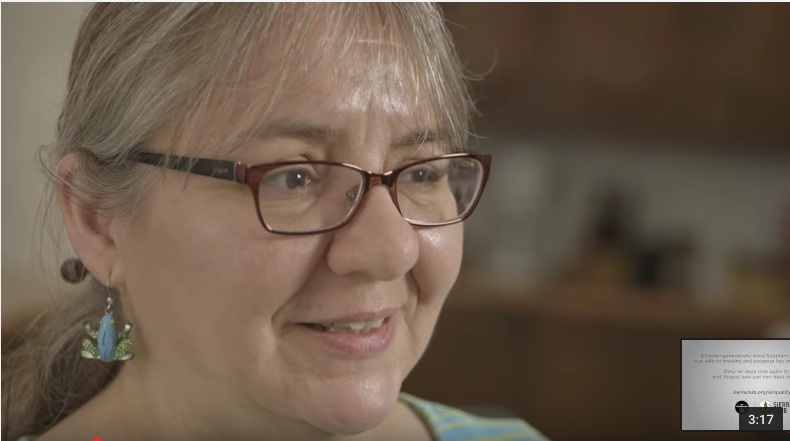The agency that regulates L.A.'s air quality got a big surprise on June 2. The Air Quality Management Board meeting in Diamond Bar announced its decision to create the largest refinery on the West Coast, and the room erupted in chants of "Shame on you, shame on you." Clean-air activists and members of the public were stunned that an agency tasked with cleaning up Southern California's air would make such a bold and wrong-headed environmental decision. In the end, the board members fled the room, shut down the meeting and stood firm with their decision.
The action, announced the day after President Trump withdrew the U.S. from the Paris Accord, allows Tesoro refineries in Carson and Wilmington to merge so they can process crude from the newly online Keystone Pipeline and Canada's dirty tar sand oil. These acts are part of why L.A. continues to have the dirtiest air in the nation.
Who's in charge of cleaning up SoCal's air?
Like most issues that involve government agencies, the answer is complicated.
Studies show Southern Californians, like Americans across the country, care about the air they breathe. "Eight out of 10 Californians — 32 million people — live in counties with unhealthy levels of ozone or particle pollution some time during the year, says the report, using U.S. Environmental Protection Agency data for three years ending in 2014," the Los Angeles Times reported. And those figures haven't improved much since then.
In 2016, ozone, the invisible corrosive gas that leads to asthma and other respiratory illnesses, exceeded federal standards on 91 days, according to South Coast Air Quality Management District data. All but one day in July of that year, ozone levels violated federal health standards.
Sierra Club and other environmental organizations work hard to influence the AQMD's decisions, but ultimately, everyone needs to lend their voice to this campaign.
Get to know these agencies, how they operate and what they regulate. Make your voice heard at public hearings, comment periods and letter-writing campaigns.
South Coast Air Quality Management District
This agency oversees regional air quality in L.A. and Orange counties. It focuses on controlling emissions from “stationary sources” of air pollution, such as the more than 28,400 businesses that operate under its permits. That includes anything from large oil refineries in the South Bay (like the one it just created with Tesoro) to small local gas stations throughout the two counties. Permits are granted to businesses to ensure that they are working under air quality rules, but critics say the AQMD doesn't enforce the permit regulations and exempts some of the dirtiest polluters.
The agency recently approved a 2023 plan for cleaner air that's not aggressive enough and leaves places like commercial marine ports and warehouse distribution centers out of the equation. Who to watch: L.A. County Superintendant and new AQMD commissioner Sheila Kuehl knows what clean air means and has introduced measures to make the AQMD more accountable.
What you can do: Attend board meetings (first Friday of every month) and/or comment beforehand. Join Sierra Club's Clean Air campaign and get involved.
The goal of this agency is similar to the SCAQMD, however CARB can regulate "nonstationary sources," i.e., cars, vehicles, diesel trucks, etc. It has been innovative in its mission to comply with air pollution rules and regulations. Some examples: The agency lead the nation with a zero-emission vehicle mandate and the diesel risk reduction plan. It also gave incentives for California drivers to buy hybrids and all-electric vehicles, a move that will make a difference with clean air.
The agency recently announced that Investment in zero-emission vehicles has reached $599 million since 2013, putting hundreds of thousands of ultra-clean cars, and entire fleets of zero-emission trucks and buses on California roads and highways.
What you can do: Again, attending a meeting and lending your voice is critical, though meetings generally are held in Sacramento. But you can stay on top of the issues via live broadcasts of the meetings. You'll find meeting dates and comment periods at the agency's website. Click here for more ways to get involved.
Environmental Protection Agency
The agency enforces federal laws fairly and effectively to protect the public health and the environment. Its mission is to ensure all Americans have access to healthy living and breathing conditions, no matter they live, work or learn. It develops and enforces regulations, gives grants to state environmental programs, nonprofit organizations, educational institutions, etc. It's no secret that President Trump is not a fan of the EPA. His newly proposed 2018 budget plan cuts funding severely, and his Paris Accord decision shows he has little interest in environmental regulation.
What you can do: Reach out to the EPA if you want to report a violation of environmental laws or regulations. You can call hotlines on individual issues, i.e., asbestos, drinking water, environmental justice, etc.
Manuiti Boissard is a graduating senior at Rolling Hills Prep in San Pedro who will be attending American University in Washington, D.C. in the fall. She worked as an intern for Angeles Chapter Sierra Club.
